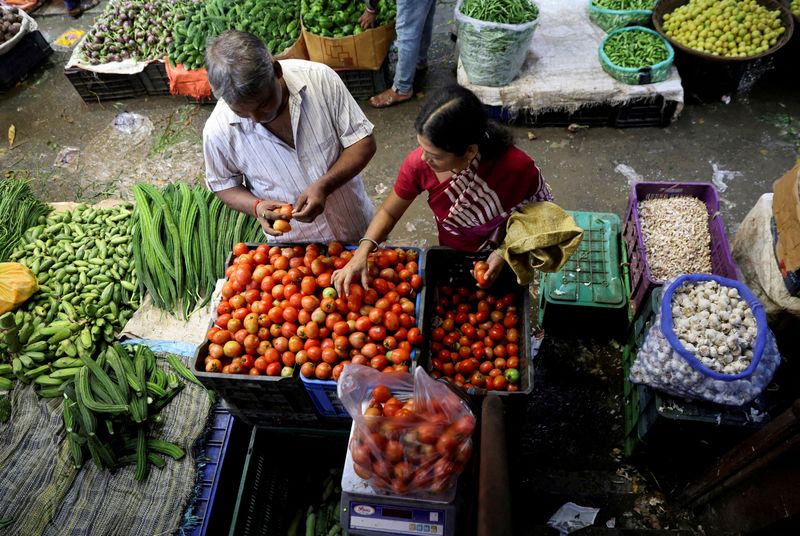By Manoj Kumar
NEW DELHI (Reuters) - India's economy is expected to have slowed in the July-September quarter, growing at the slowest pace in 18 months, weighed down by weak urban consumption following a rise in food prices despite an increase in government spending.
A Reuters poll of economists projected GDP growth of 6.5% year-on-year for the three months through September, below the central bank's estimate of 7% and 6.7% in the previous quarter.
Economic activity, as measured by gross value added (GVA), was forecast to show a more modest 6.3% expansion compared with 6.8% in the previous quarter.
If the projection holds, it would mark the third consecutive quarter of slower growth, though India would remain the world's fastest growing major economy.
The Reserve Bank of India (NS:BOI) (RBI) has maintained its GDP growth forecast for the fiscal year at 7.2%, down from 8.2% in the previous fiscal year, while several private economists have lowered their projections.
The National Statistics Office is due to announce GDP figures for July-September quarter on Friday at 1030 GMT.
Economists said private consumption, which accounts for about 60% of India's gross domestic product (GDP), has been affected by a slowdown in urban spending due to higher food inflation, borrowing costs and sluggish real wage growth, despite signs of recovery in rural demand.
Retail food prices, which make up nearly half of the consumption basket, rose 10.87% year-on-year in October, eroding households' purchasing power.
Toshi Jain, an economist at J.P. Morgan, said recent months have seen a slowdown in high-frequency indicators such as industrial output, fuel consumption and bank credit growth, along with weak corporate earnings, affecting growth momentum.
"(Though) government spending has re-accelerated in the July-September quarter that has not prevented a slowing in high frequency data, suggesting underlying private sector momentum has softened," she said in note earlier this week.
Jain expects GDP growth of 6.3% to 6.5% in September quarter.
Top Indian companies posted their worst quarterly performance in over four years for the July-September period, raising concerns that an emerging economic slowdown had begun to affect corporate earnings and investment plans.
However, the RBI is expected to keep its policy interest rates unchanged next week amid concerns over high retail inflation, according to economists in a Reuters poll.
The RBI's Monetary Policy Committee, left its benchmark repo rate unchanged at 6.50% last month, while tweaking its policy stance to "neutral".

Government officials and some economists expect the economy could regain momentum in the second half of the fiscal year, helped by a pick-up in state spending after recent elections, and higher rural demand after a better harvest.
"We expect recovery in growth in the second half," Axis Capital (NYSE:AXS) Economic Research said in a note.